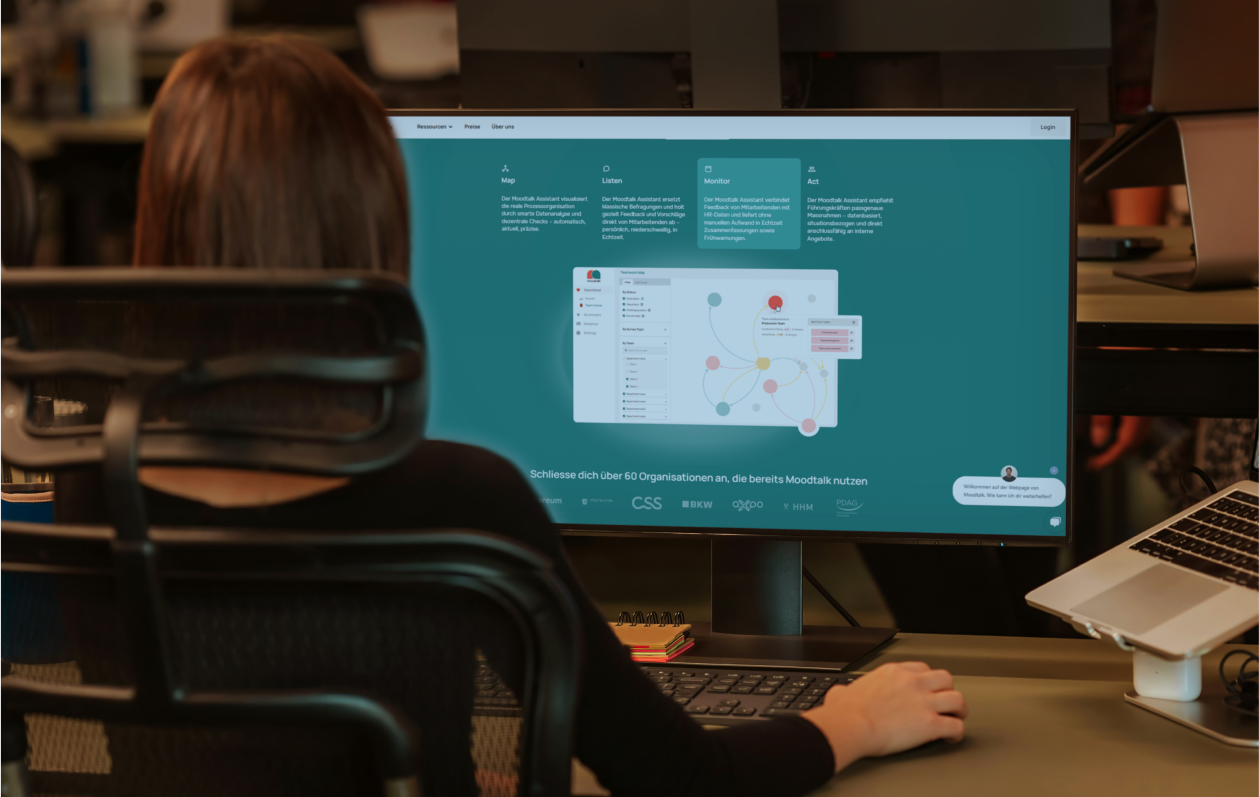Collaboration is essential—especially for apprentices who regularly integrate into new teams. CSS uses Moodtalk strategically to support this process and sustainably strengthen the company’s learning culture. Through structured peer exchange, apprentices address challenges early on, while vocational trainers identify issues in time and collaboratively develop solutions to improve the well-being and teamwork of apprentices.
Insights into the CSS apprentice case are shared by our Co-Founder Loris in an interview with HR Today:
Moodtalk at CSS: Peer Learning as the Key to Better Collaboration
Apprentices at CSS must navigate the working world and frequently face new challenges. Since many of them share similar experiences, they benefit greatly from exchanging ideas with fellow apprentices. Moodtalk provides them with a structured platform to collaboratively develop solutions, identify challenges early, and create practical strategies. One particularly valuable aspect is knowledge sharing: senior apprentices pass on their experiences to newer ones, allowing problems to be reflected upon and practical solutions to emerge directly from within the team. For example, it quickly became clear that feedback culture was a key challenge. Within two months, CSS was able to respond specifically and integrate relevant training into its apprenticeship program.
Benefits for CSS and Its Apprentices
The use of Moodtalk has already led to significant improvements for CSS:
- Faster Response to Challenges: Key issues are identified up to four times faster than with traditional methods.
- Better Integration and Appreciation of Apprentices: Moodtalk helps integrate apprentices more deeply into teams and amplifies their voice within the company.
- Stronger Learning Culture: Apprentices develop essential skills directly through everyday work experiences.
Conclusion: How Moodtalk Is Revolutionizing Collaboration at CSS
The use of Moodtalk at CSS demonstrates that data-driven reflection and peer learning can play a crucial role in sustainably improving collaboration and well-being among apprentices. The apprentices benefit from the opportunity to address their challenges independently, while vocational trainers and those responsible for personnel and organizational development at CSS can respond to their needs more quickly and effectively.
Sources
- HR Today, Video: Lernende und interne Kommunikation, 17.02.2025










.jpg)













